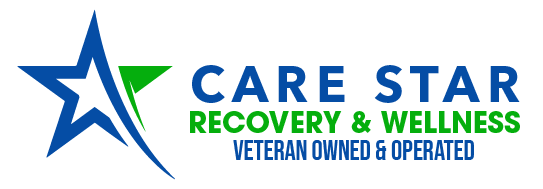Outsmarting Relapse: Recognizing & Managing Your Triggers
Recovery from addiction is a journey, not a destination. It’s common to encounter challenges along the way, and relapse is, unfortunately, a reality for many. But relapse doesn’t mean failure; it’s an opportunity to learn and strengthen your resolve. At Care Star Recovery & Wellness, we equip you with the knowledge and tools to identify your personal triggers and develop effective coping mechanisms. Let’s explore some common relapse triggers and how to manage them.

Understanding Relapse Triggers
A trigger is any person, place, thing, or situation that evokes cravings or urges to use substances again. These triggers can be internal (thoughts, feelings) or external (people, places, objects). Recognizing your triggers is crucial for developing a strong relapse prevention plan.
Common Relapse Triggers
- Stress & Negative Emotions:
Stress is a major contributor to relapse. When faced with overwhelming feelings like anxiety, depression, or anger, individuals may turn to substances as a way to cope.
- Solution: Develop healthy coping mechanisms to manage stress and negative emotions. This might include exercise, meditation, deep breathing exercises, or talking to a therapist or support group.
- Social Situations & Peer Pressure:
Social gatherings where alcohol or drugs are present can be particularly challenging for those in recovery. Peer pressure or the desire to fit in can make it difficult to say no.
- Solution: Surround yourself with supportive friends and family who understand your journey. Avoid situations where you’re likely to be tempted. Practice saying “no” assertively and have an exit plan in case you feel uncomfortable.
- Environmental Cues:
Places, objects, or even certain smells can trigger memories and cravings associated with substance use.
- Solution: Identify your environmental triggers and avoid them if possible. If encountering a trigger is unavoidable, create a plan to cope with the situation, such as having a support person with you or engaging in a distracting activity.
- Celebrations & Special Occasions:
Holidays, birthdays, and other celebrations often involve alcohol and can be challenging for those in recovery.
- Solution: Plan ahead for these events. Have a non-alcoholic beverage in hand, bring a supportive friend, and be prepared to leave if necessary.
- Boredom & Loneliness:
Lack of structure or social connection can increase the risk of relapse.
- Solution: Fill your time with healthy activities and hobbies. Stay connected with supportive friends and family. Consider volunteering or joining a recovery group to build a sense of community.
Personalized Relapse Prevention at Care Star
At Care Star Recovery & Wellness, we recognize that each individual’s recovery journey is unique. Our comprehensive program includes relapse prevention education and therapy to help you identify your personal triggers, develop coping skills, and create a sustainable plan for long-term sobriety. We also offer ongoing support and aftercare services to help you stay on track and navigate life’s challenges without turning to substances.
Relapse is a possibility, but it doesn’t have to define your recovery. By understanding your triggers and developing healthy coping mechanisms, you can significantly reduce your risk of relapse and achieve lasting sobriety.
If you’re struggling with addiction or concerned about relapse, reach out to Care Star Recovery & Wellness today. Our caring and experienced team is here to provide the support and guidance you need to achieve a healthy and fulfilling life in recovery.
